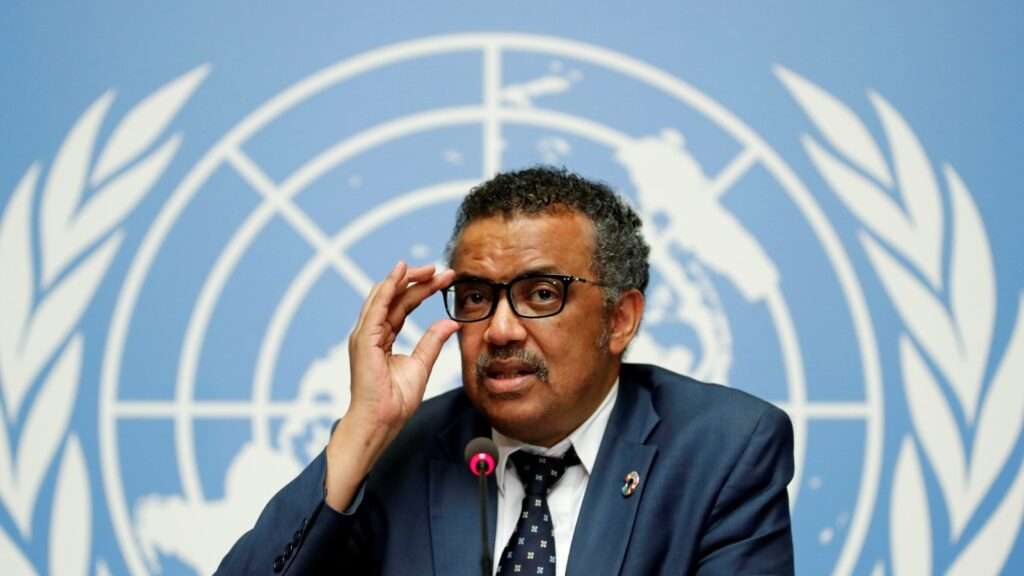Over 50 countries, cities, and organizations have pledged new commitments to combat air pollution, aiming to protect public health and halve its devastating impact by 2040.
This ambitious goal is backed by a petition signed by 47 million health professionals, patients, and advocates demanding that clean air be prioritized as a fundamental public health issue.
The Second WHO Global Conference on Air Pollution and Health, co-hosted by the World Health Organization (WHO) and Colombia in the city of Cartagena, saw participation from over 700 delegates representing 100 nations. Among them were heads of state, ministers, scientists, and civil society groups, all committed to accelerating measures to tackle what experts are calling a full-scale health crisis.
“It is time to move from commitments to bold actions,” stated WHO Director-General Tedros Adhanom Ghebreyesus.
“To achieve clean air, we need urgent actions on all fronts: financial investment in sustainable solutions, such as in clean energy and sustainable transport, technical enforcement of WHO global air quality guidelines, and social commitment to protect the most vulnerable in our most polluted regions.”
WHO Director-General, Tedros Adhanom Ghebreyesus

The conference participants agreed on a common objective: to cut the health impacts of air pollution by 50 percent within the next two decades.
Countries such as Brazil, Spain, China, and the United Kingdom unveiled national roadmaps aimed at curbing pollution levels. Meanwhile, the Clean Air Fund committed an additional $90 million towards climate and health programs.
Several major cities under the C40 network, including London, pledged to strengthen air quality monitoring and invest more aggressively in clean air strategies.
A Growing Public Health Emergency
According to WHO, air pollution is responsible for seven million premature deaths each year, making it the second leading global risk factor for disease after hypertension.
“Today, air pollution is the first risk factor for disease burden,” said Maria Neira, WHO’s Director of Environment, Climate Change, and Health. “It’s the number one risk factor for getting sick.”
The crisis is particularly severe in rapidly urbanizing regions with inadequate regulatory frameworks. However, Neira cautioned that the economic costs and health impacts of pollution are rising globally. “These chronic diseases are placing an immense burden on our healthcare systems and economies,” she warned.
Despite the alarming statistics, WHO officials insist that solutions exist. Neira pointed to China’s success in reducing emissions while sustaining economic growth.
“At one point, they demonstrated that you can reduce air pollution while still maintaining economic growth. The idea that investing in climate and environmental health comes at an economic cost is simply incorrect.”
Maria Neira, WHO’s Director of Environment
Experts stress that air pollution is not just a public health issue — it is also a major contributor to the climate crisis. The burning of fossil fuels, which fuels air pollution, is also responsible for releasing greenhouse gases that accelerate global warming.
“Climate change causes and air pollution causes overlap. We have much to gain in terms of health, economic prosperity, and sustainable development by accelerating the transition to clean energy.”
Maria Neira, WHO’s Director of Environment
She highlighted that measures to improve air quality — such as renewable energy, better urban planning, and phasing out fossil fuels — are also critical climate mitigation strategies.
Colombia, as the host nation, presented a series of national initiatives aimed at reducing emissions. These include cleaner fuel adoption, expansion of zero-emission public transport, and an ambitious target to cut carbon emissions by 40 percent by 2030.
The commitments made at the Cartagena conference mark a significant step toward tackling the dual crises of air pollution and climate change. However, as WHO leaders stress, pledges must now translate into decisive action to protect both public health and the planet.
READ ALSO: Ed Sheeran Admits to Special Connection With Rihanna




















